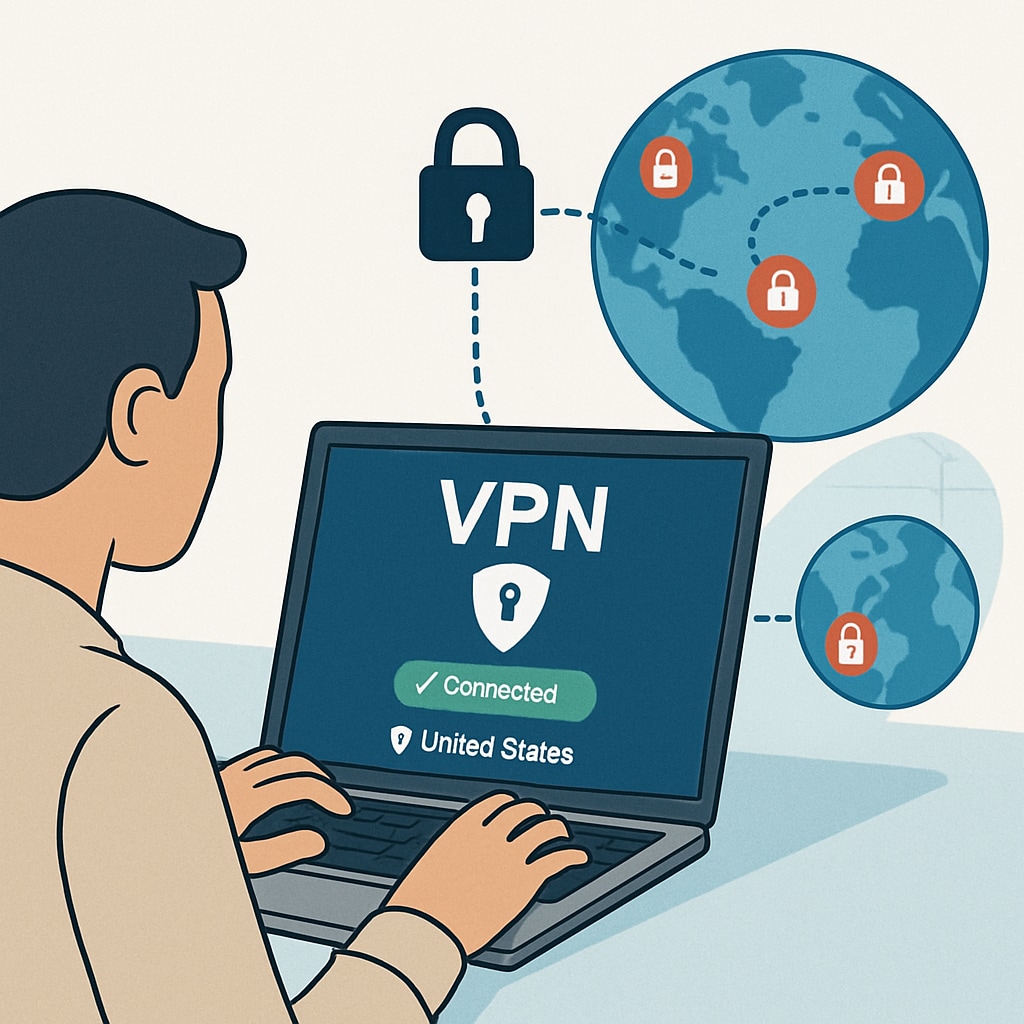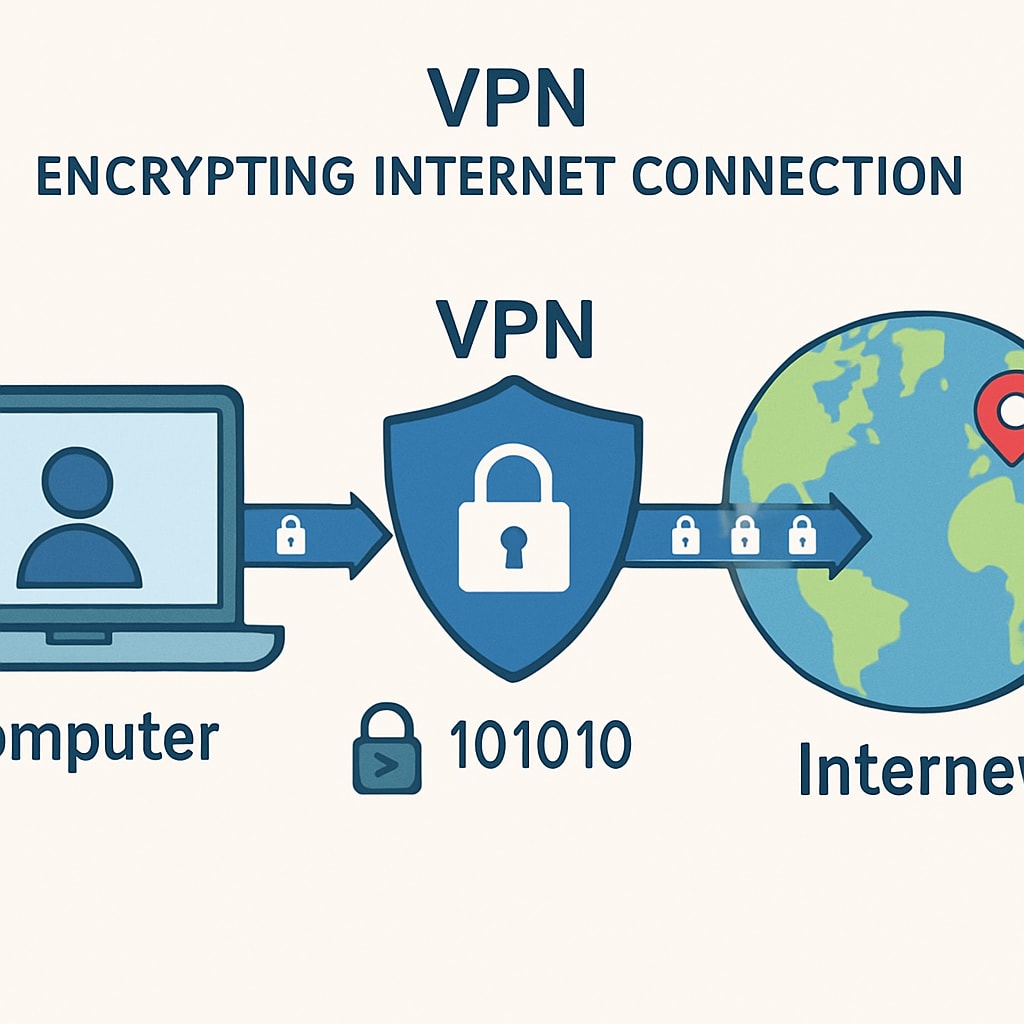The introduction of the UK’s age verification law for accessing adult content has sparked significant debate and unforeseen consequences. One of the most notable effects is the increased use of VPNs (Virtual Private Networks) to bypass these restrictions. As governments prioritize online safety, privacy advocates and tech-savvy users question the broader implications of such regulations. This article delves into how the law influences VPN usage, the underlying reasons, and its impact on internet behavior.
Understanding the UK’s Age Verification Law
In 2023, the UK introduced stricter online age verification measures to limit underage access to adult content. This law mandates that websites hosting such material confirm the age of users through government-approved methods, such as credit card authentication or third-party verification systems. The goal is to enhance child safety online, but critics argue it imposes on personal privacy and creates potential data security risks.

However, as these regulations roll out, many users are turning to VPNs to maintain their anonymity while accessing restricted content. VPNs allow users to mask their IP addresses and appear to be browsing from another region, effectively bypassing age verification requirements.
Why VPN Usage Is Rising
The surge in VPN usage can be attributed to several factors:
- Privacy Concerns: Many users are wary of sharing personal information, such as government IDs, fearing potential data breaches or misuse.
- Accessibility Issues: Technical errors or inconsistencies in the verification process can lock out legitimate users, prompting them to seek alternatives.
- Cost-Free Solutions: Many VPNs offer free versions, making them an attractive option for bypassing restrictions without additional expense.
According to Wikipedia, internet privacy is increasingly under threat as governments and organizations impose more data collection requirements. For users concerned about digital footprints, VPNs provide an essential shield.
The Role of VPNs in Circumventing Regulations
VPNs work by routing a user’s internet connection through a secure server in another location, masking their identity and bypassing geographical restrictions. For example, a UK resident using a VPN can appear as though they’re browsing from a country without age verification laws. This functionality has made VPNs a go-to tool for users who value unfettered internet access.

While VPNs offer numerous legitimate uses, such as securing public Wi-Fi connections or accessing geographically restricted content like streaming services, their role in bypassing government regulations raises ethical questions. According to Britannica, VPNs are a double-edged sword—balancing privacy protection with the potential for misuse.
Challenges and Implications for the UK
The UK’s age verification law, while well-intentioned, has encountered several challenges:
- Enforcement Difficulties: The widespread availability of VPNs makes it hard for authorities to enforce the law effectively.
- Economic Impacts: Adult content websites may lose UK-based traffic due to users switching to alternative platforms or using VPNs to bypass restrictions.
- Privacy Backlash: Critics argue that the law sets a precedent for intrusive online surveillance, undermining trust in government initiatives.
As a result, the regulation has sparked heated discussions on the balance between online safety and personal freedom. Policymakers may need to revisit the law to address these concerns without alienating users or compromising their privacy.
Looking Ahead: Balancing Safety and Privacy
The UK’s age verification law highlights the tension between protecting minors and respecting individual rights. While the rise in VPN usage demonstrates the adaptability of internet users, it also underscores the need for comprehensive, privacy-conscious solutions to online safety challenges. As debates continue, governments worldwide may look to the UK as a case study in regulating digital spaces without infringing on personal freedoms.
Ultimately, the success of such regulations will depend on their ability to strike a balance between safety, accessibility, and privacy—an ongoing challenge in an increasingly connected world.
Readability guidance: This article uses short paragraphs and lists to improve readability. Transition words like “however” and “in addition” ensure smooth flow, while technical terms are explained for accessibility. Images are placed to visually support key concepts.


